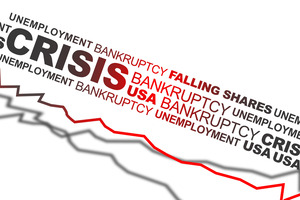
Does it feel as if your spending is out of control?
You aren’t alone. Many people face financial turmoil and don’t feel in control of their finances.
The good news is there are several things you can do to get your financial situation under control. For example:
1. Track Your Spending
Knowing where your money is going is the first step to regaining control of your finances. Use a budgeting app or a simple spreadsheet to track your income and expenses. This will help you identify areas where you can save money.
2. Make a Budget Plan
Once you know where your money is going, you can develop an action plan that will help you save more each month. Make a list of your financial priorities, such as paying off debt or saving for retirement, and work toward those goals consistently. This helps you create a budget that works for you and your needs.
3. Reduce Expenses
There are always ways to save money in your monthly budget if you’re willing to look for them. Take a close look at your spending and identify areas where you can cut back or eliminate certain expenses, such as eating out or paying for cable TV.
4. Increase Your Income
If cutting expenses isn’t enough to get your finances back on track, another option is to increase your income by taking on a part-time job or finding ways to earn extra money.
5. Seek Professional Help
Sometimes it’s helpful to get an outside perspective on your finances. If you’re struggling to regain control of your money, consider seeking help from a financial advisor or credit counseling service. These professionals can offer advice and guidance that can help you make better financial decisions.
Can Bankruptcy Help?
Bankruptcy can provide much-needed relief for individuals and families struggling with debt.
How can bankruptcy help?
- Bankruptcy may allow you to discharge certain types of debt. This means that you will no longer be legally obligated to pay back the debt. Certain types of debt, such as student loans and tax debts, cannot be discharged through bankruptcy.
- Bankruptcy can allow you to restructure your debt so that it is more manageable. You may choose a repayment plan that allows you to pay off your debts over time or opt for a short sale to pay off your debts for less than what you owe.
- Bankruptcy may stop creditors from taking legal action against you. Once you file for bankruptcy, an automatic stay goes into effect which stops creditors from taking any type of collection action against you.
- Bankruptcy can give you a fresh start financially. After bankruptcy, your credit score will likely take a hit, but this can be an opportunity to start over and rebuild your credit.
- Bankruptcy may provide emotional relief by getting you out of debt. Being in debt can be emotionally draining and stressful, so bankruptcy can give you the freedom to move on with your life without the financial burden of debt.
Wondering how to take control of your financial situation?
If you are struggling with debt, bankruptcy may be the right solution for you. Speak with a bankruptcy attorney to learn more about how bankruptcy can help you get back on your feet financially.
To learn more, contact the Law Offices of Robert M. Geller at 813-254-5696 to schedule a free consultation.




























![Signs That You May Need to File Bankruptcy [Infographic]](https://djml3wkzi26ea.cloudfront.net/wp-content/uploads/2021/01/signs-chap7-v-chap13.jpg)
![How To File for Bankruptcy [Infographic]](https://djml3wkzi26ea.cloudfront.net/wp-content/uploads/2020/07/bankruptcy-steps-infographic-web.jpg)










